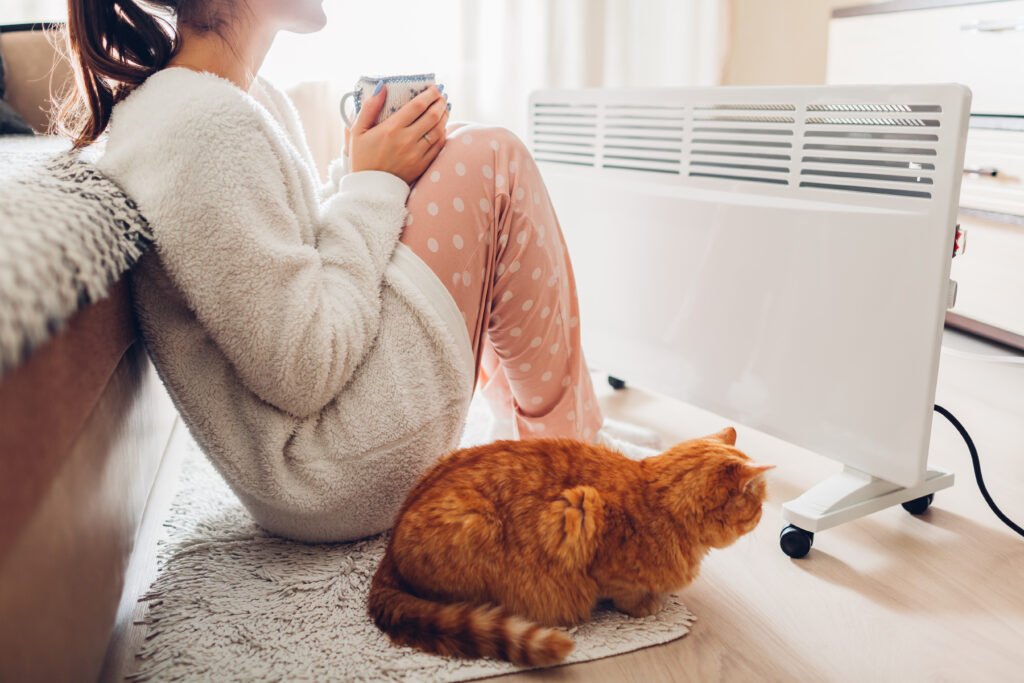As the chill of winter sets in, many of us start to dread the inevitable rise in heating bills. Traditional heating systems can be energy-intensive, leading to high costs and a significant environmental footprint. But fear not! Energy efficient heaters offer a solution to keep you warm and cozy while reducing your energy consumption and saving you money. This comprehensive guide will delve into the world of energy efficient heaters, exploring the different types, their benefits, and how to choose the best one for your needs.
Understanding Energy Efficiency in Heaters
Before we dive into the specifics, let’s clarify what makes a heater energy efficient. In essence, an energy efficient heater is designed to convert a higher percentage of energy into heat, minimizing waste. This is achieved through various technologies and design features, such as:
- Thermostats and Timers: Precise temperature control and the ability to schedule heating prevent energy waste by ensuring the heater only operates when needed.
- Convection Technology: Efficiently circulates warm air throughout the room, reducing cold spots and the need for higher temperature settings.
- Infrared Heating: Directly warms objects and people in the room instead of the air, resulting in faster and more targeted heating.
- Zonal Heating: Allows you to heat only the occupied areas of your home, avoiding energy waste on heating unused spaces.
- Insulation and Sealing: Well-insulated heaters minimize heat loss and maximize efficiency.
Types of Energy Efficient Heaters
The market offers a wide variety of energy efficient heaters, each with its own strengths and weaknesses. Let’s explore some of the most popular options:
- Infrared Heaters: These heaters use infrared radiation to warm objects and people directly, providing quick and efficient warmth. They are ideal for spot heating or for people sensitive to dry air, as they don’t reduce humidity.
- Pros: Fast heating, targeted warmth, doesn’t dry the air.
- Cons: Can be more expensive, limited range, may not be suitable for large rooms.
- Ceramic Heaters: These compact and portable heaters use ceramic elements to produce heat. They are known for their fast heating and safety features, making them a popular choice for small to medium-sized rooms.
- Pros: Fast heating, portable, relatively inexpensive.
- Cons: Can dry the air, may not be suitable for large rooms.
- Heat Pumps: These systems transfer heat from one place to another, providing both heating and cooling. While they have a higher upfront cost, they are highly energy efficient and can significantly reduce your energy bills in the long run.
- Pros: High energy efficiency, both heating and cooling, environmentally friendly.
- Cons: Higher upfront cost, might not be appropriate in all climates.
- Electric Radiators: These heaters use convection to distribute heat evenly throughout the room. They are known for their quiet operation and long lifespan, making them a good choice for bedrooms and living areas.
- Pros: Quiet operation, even heat distribution, long lifespan.
- Cons: Can be slow to heat up, may not be suitable for large rooms.
- Smart Heaters: These Wi-Fi enabled heaters offer advanced features like remote control, scheduling, and integration with smart home systems. They provide optimal comfort and energy savings through precise temperature control and automation.
Choosing the Right Energy Efficient Heater
Selecting the best energy efficient heater for your needs depends on several factors, including:
- Room Size: Consider the size of the room you want to heat. Some heaters are better suited for small spaces, while others can effectively heat larger areas.
- Heating Needs: Do you need spot heating for a specific area, or do you want to heat the entire room?
- Budget: Energy efficient heaters range in price, so determine your budget before making a purchase.
- Features: Consider features like thermostats, timers, remote control, and safety features.
- Energy Source: Choose a heater that uses an energy source that is readily available and affordable in your area.
Benefits of Using Energy Efficient Heaters
Investing in energy efficient heaters offers numerous benefits, including:
- Cost Savings: Reduce your energy bills by consuming less energy.
- Environmental Impact: Lower your carbon footprint and contribute to a healthier planet.
- Improved Comfort: Enjoy consistent and comfortable temperatures throughout your home.
- Enhanced Safety: Many energy efficient heaters come with safety features like overheat protection and tip-over switches.
- Increased Home Value: Energy-efficient upgrades can increase the value of your home.
Maintenance and Care Tips
To ensure the longevity and efficiency of your energy efficient heater, follow these maintenance tips:
- Clean the heater regularly: Dust and debris can hinder the heater’s performance.
- Check the filters: If your heater has filters, clean or replace them as needed.
- Inspect the cords and plugs: Look for any signs of damage or wear.
- store the heater: store the heater in a clean and dry place when it’s not in use, .
Conclusion
Energy efficient heaters offer a smart and sustainable way to stay warm during the colder months. By understanding the different types of heaters, their benefits, and how to choose the right one for your needs, you can make an informed decision that will save you money and reduce your environmental impact. Embrace the warmth and comfort of energy efficient heating while contributing to a greener future.

